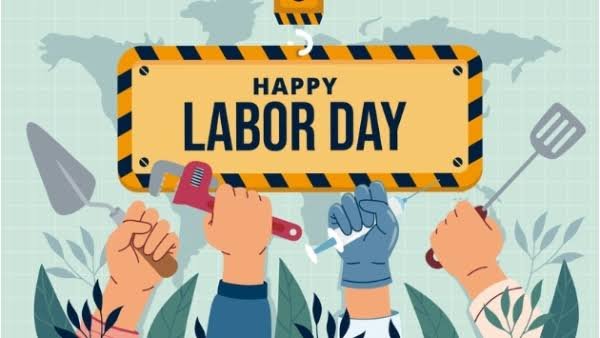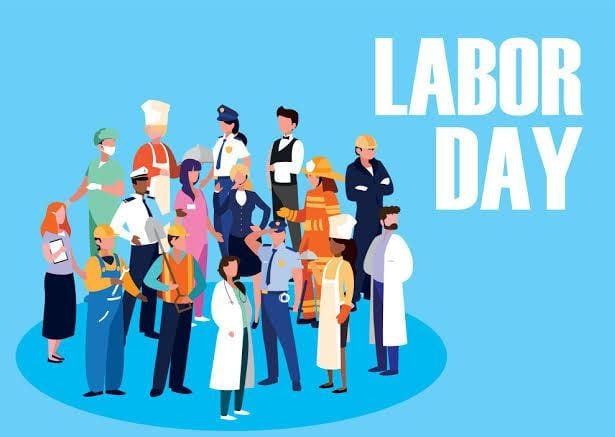Every year, on May 1st, countries across the world observe Labour Day—a tribute to the countless workers whose hands build nations, fuel economies, and uphold the very fabric of our daily lives. While the day often carries a celebratory tone marked by parades, speeches, and holidays, it is deeply rooted in a history of protest, sacrifice, and the demand for justice. Today, as we stand in an era shaped by rapid technological change, shifting economies, and the precariousness of gig work, the call for dignified work remains as relevant—and urgent—as ever.
A History Forged in Struggle

Labour Day, also known as International Workers’ Day, emerged from the labour union movement’s fight for an eight-hour workday in the late 19th century. The most iconic of these struggles took place in the United States with the Haymarket affair of 1886, when peaceful demonstrators in Chicago demanding fair work hours were met with violence. The protests, and the unjust execution of several activists, galvanized the global labour movement.
In India, Labour Day was first celebrated in Chennai on May 1, 1923, led by the Labour Kisan Party. It symbolised a growing awareness of workers’ rights during colonial rule and marked the beginning of organized labour consciousness in the country.
What Is “Dignified Work”?
Dignified work extends beyond just fair wages. It encapsulates a worker’s right to safety, security, equality, and respect in the workplace. It means having the freedom to organize, protection against exploitation, and the opportunity to grow and contribute meaningfully. The International Labour Organization (ILO) defines it as “productive work for women and men in conditions of freedom, equity, security and human dignity.”
Unfortunately, in both developed and developing economies, these conditions are far from universally met. From child labour in supply chains to unsafe conditions in garment factories and underpaid workers in informal sectors, millions remain excluded from even the most basic protections.
Modern Challenges in the World of Work
The 21st century has brought significant shifts in the nature of employment:
Gig Economy and Precarity: Platforms like Uber, Swiggy, and Zomato have created new forms of employment, but often without traditional protections such as health benefits, paid leave, or job security. Many workers are classified as “independent contractors,” denying them labour rights.
Informal Sector Vulnerability: In India, over 90% of the workforce remains in the informal sector, where labour laws are loosely enforced. The COVID-19 pandemic made their vulnerabilities starkly visible, with migrant workers walking thousands of kilometres due to sudden lockdowns and job losses.
Gender and Caste Inequities: Women and marginalized caste communities often bear the brunt of wage discrimination, workplace harassment, and a lack of opportunity. Domestic workers, sanitation workers, and agricultural labourers remain among the most exploited, with minimal visibility in policy discussions.
The Role of Policy and Public Will
Labour laws must evolve with changing work structures. The Code on Wages (2019) and other recent reforms in India aimed to simplify and unify various labour laws, but critics argue they do little to strengthen worker protections. There is also an urgent need to address union suppression, especially in the private and digital sectors, where collective bargaining is discouraged or outright banned.
Government initiatives like the Mahatma Gandhi National Rural Employment Guarantee Act (MGNREGA) have provided a safety net, but there’s a growing need to reimagine such schemes for urban workers and to create sustainable, green jobs for the future.
The Way Forward: Reclaiming the Spirit of Labour Day

Labour Day must not remain a symbolic annual ritual. It should be a call to action—to ensure that economic growth translates into human dignity, that automation and AI do not widen inequality, and that workers are never treated as expendable.
We need to:
Strengthen labour unions and worker cooperatives
Enforce minimum wage laws and occupational safety standards
Provide social security to all workers, especially those in informal or gig sectors
Uplift women, trans persons, and marginalized groups within the workforce
Promote inclusive and sustainable economic policies
The struggle for dignified work is not a relic of the past—it is the unfinished business of the present. As we mark another Labour Day, we must look beyond hashtags and headlines and ask: What are we doing to ensure that every worker, no matter their job or background, is treated with fairness, respect, and humanity? The real tribute to the legacy of May Day lies not in remembering the past, but in shaping a more just and equitable future of work.

